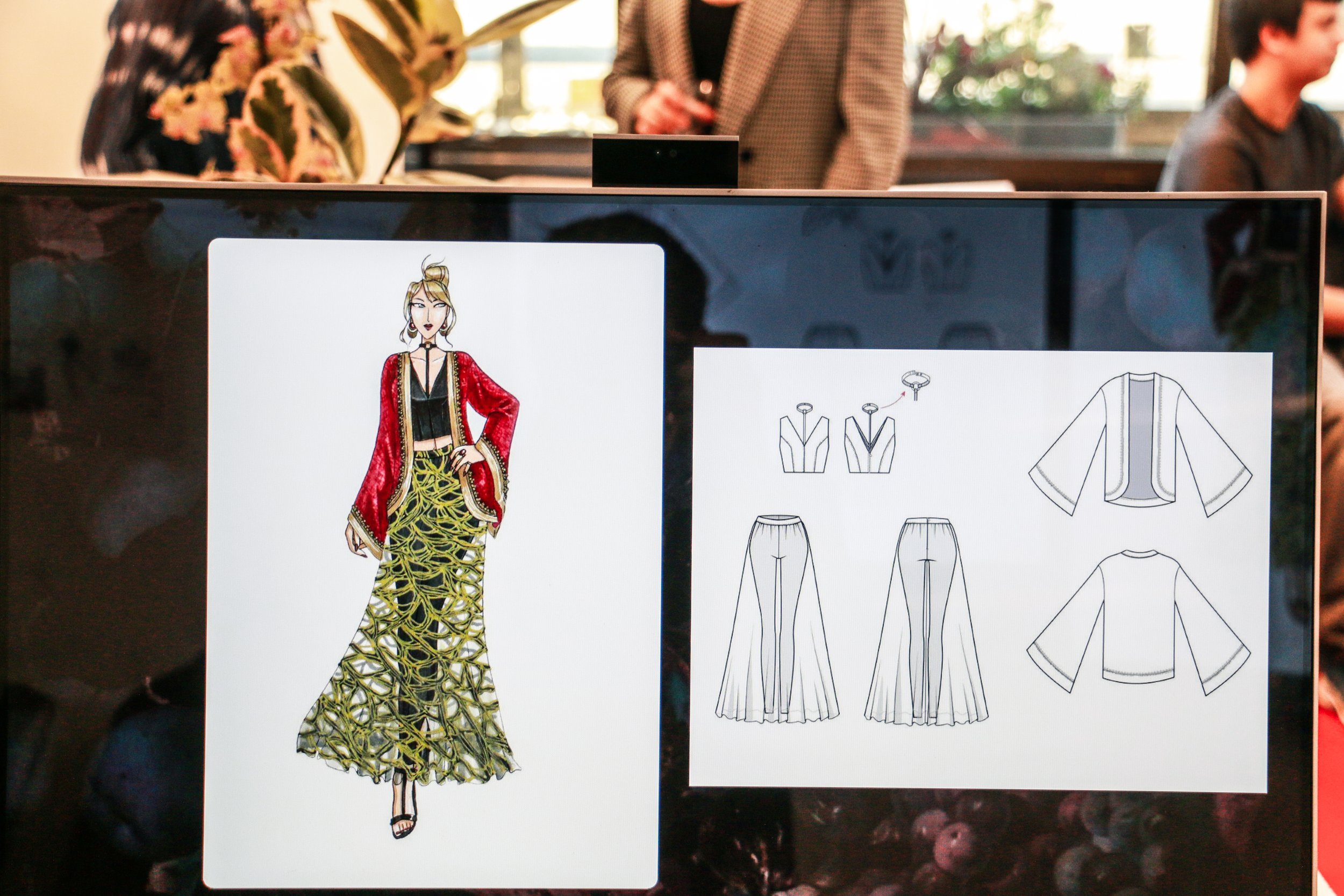What Can You Do With a Fashion Design Diploma?
Are you passionate about fashion but unsure where a diploma might lead you? You're not alone. Thousands of fashion students search every month for "careers in fashion," "how to become a fashion designer," or "what can I do with a fashion diploma?"
The truth is, fashion design isn't just about sketching runway looks or launching a clothing brand—it's about translating creativity into real-world impact. Here are a wide range of exciting and rewarding roles across the fashion industry:
1. Fashion Designer
Whether you're dreaming of starting your own label or joining an established house, a diploma helps you build the technical foundation to bring your collections to life—from concept and illustration to construction and production.
Most days start with sketches—sometimes inspired by trend research, other times by a moment on the street. A fashion designer balances creative flow with practical deadlines. You’ll spend time sourcing fabrics, reviewing samples with your pattern maker, and revising designs based on fit tests or feedback from your team. If you’re running your own brand, expect to juggle design with production planning, marketing decisions, and maybe even pitching to stores or stylists. The outcome? A collection that reflects your perspective—and the skills to bring that vision from concept to runway or rack.
2. Technical Designer or Product Developer
The bridge between design and manufacturing, this role requires a strong understanding of garment construction, fabric behavior, and tech packs—skills you’ll master in our hands-on learning environment.
In this role, you’re the problem solver in the fashion pipeline. Your day might involve reviewing factory samples, annotating fit comments, and updating tech packs with every small adjustment—making sure the garment matches both the designer’s intention and the customer’s expectations. You work closely with pattern makers, suppliers, and overseas production teams. Your job is all about precision: making sure every seam, stitch, and measurement meets the spec. It’s not always glamorous—but it’s the backbone of quality in fashion production.
3. Fashion Illustrator or Textile Designer
Have a talent for drawing or pattern design? These careers blend art, storytelling, and trend forecasting—perfect for visual thinkers looking to shape the aesthetics of tomorrow.
This is a deeply creative role, but it also requires a strong sense of industry relevance. You might start your morning gathering inspiration or creating mood boards. Then, you move into sketching—manually or digitally—exploring color palettes and motifs. For textile designers, days are filled with repeat pattern development and making sure your prints align with both seasonal trends and technical limitations of fabric printing. Whether you’re freelancing or in-house, your work feeds the emotional and visual identity of a brand.
4. Fashion Buyer or Merchandiser
If you love predicting trends and understanding what customers want, these roles are ideal for blending business strategy with creative vision. Grads often go on to work with top retailers or e-commerce brands.
You’re on the business side of fashion—but with a sharp eye for what sells. Your week could involve analyzing sales reports, meeting with brand reps to preview upcoming collections, or traveling to fashion markets to spot trends before they hit mainstream. In merchandising, you’re curating assortments, managing inventory, and ensuring the product mix speaks to your target customer. It's less about sewing and more about strategy—you're influencing what ends up in stores and online, and ultimately shaping the fashion experience for consumers.
5. Costume Designer
From film and TV to live performance, costume designers use fashion as a tool to tell stories and shape characters. A strong foundation in design, fabric manipulation, and history is key.
Working in costume means you rarely design in a vacuum. Every project starts with a script, a director’s vision, and hours of research. You might be sketching ideas one day and shopping for vintage boots the next. Fittings are frequent and deadlines tight, especially if you're on a film or TV set. You collaborate with actors, stylists, and production teams to make sure every piece serves the character and scene. It’s demanding, but deeply satisfying—especially when your work helps tell a story on screen or stage.
6. Technical Pattern Maker & Garment Technician
Precision meets creativity. Pattern makers and garment technicians are the unsung heroes of the fashion industry—transforming 2D sketches into perfectly constructed, production-ready garments. You'll use industry-standard tools like Gerber or Clo3D, and work closely with designers and manufacturers to bring collections to life.
Here, your role is less about aesthetics and more about construction logic. Your days revolve around turning a designer’s sketch into a pattern that works in the real world. That means calculating proportions, adjusting for different sizes, and collaborating with sample makers to test each piece. You’ll use tools like Gerber or Clo3D and work closely with factories to ensure patterns translate well at scale. It’s a highly skilled, often behind-the-scenes role—but one that ensures everything fits, flows, and functions perfectly.
Why a Fashion Design Diploma Matters
In a competitive industry, formal training gives you more than just credibility—it gives you clarity. Our students graduate with technical mastery, creative confidence, and a professional portfolio that opens doors.
Fashion is evolving rapidly, and employers are actively searching for fashion design graduates, pattern makers, stylists, and eco-conscious designers who are ready to meet the demands of today’s global market.
Your Future Starts Here
A fashion design diploma isn’t just a credential—it’s your launchpad to a meaningful, creative, and future-forward career.
💡 Curious which path is right for you?
Explore our Full-Time Programs or Book a Tour today to speak with our admissions team.
Join a community where your ideas become garments, and your ambition becomes your career.


